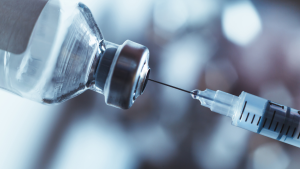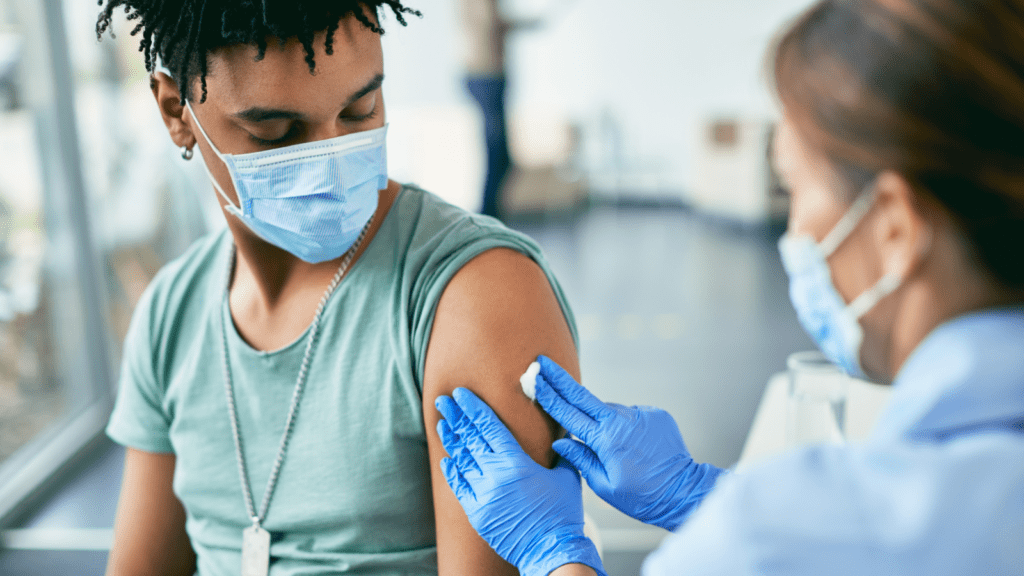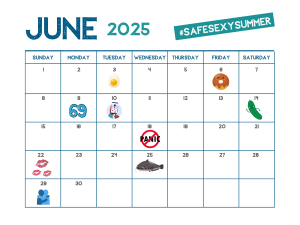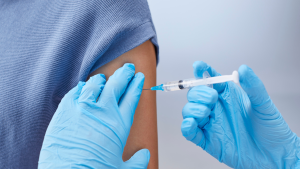
FDA Approves New Version of PrEP—Just Two Shots A Year
The FDA has approved lenacapavir as a form of pre-exposure prophylaxis (PrEP), offering a new option for HIV prevention requiring only two shots per year.

One important prevention tool against sexually transmitted infections is vaccination. Currently, vaccines are available to protect against infection with HPV, hepatitis A and hepatitis B, and mpox. Other vaccines are under development, including those for HIV and herpes simplex virus (HSV). A phase 1 trail for a possible new chlamydia vaccine has also shown encouraging results.
Hepatitis B virus can be passed on by body fluids (semen, vaginal secretions, and blood) and is most often transmitted through sexual contact. It can also be contracted when injecting drug users share needles and other injecting equipment.
While hepatitis B can cause a mild illness, it can also be a more serious chronic infection, with complications including cirrhosis (scarring of the liver) and even liver cancer.
The Centers for Disease Control and Prevention (CDC) recommends hepatitis B vaccination for:
Three or four shots over six months.
The hepatitis B vaccine is safe, and the most commonly reported side effect is soreness at the injection site. Those completing the series have greater than 90% protection against hepatitis B.
Hepatitis A is transmitted primarily through oral contact with feces (oral-fecal contact). This includes contaminated food or water sources and sexual contact, especially oral-anal sex.
The Centers for Disease Control and Prevention (CDC) recommends hepatitis A vaccination for all children and adolescents, as well as people who are at increased risk for hepatitis, including:
Others recommended for hepatitis A vaccine:
Two shots, six months apart. A hepatitis A/hepatitis B combination vaccine can also be given to adults. The combined vaccine is given in three doses over six months.
The hepatitis A vaccine is effective and provides long-term protection after the second dose. Soreness at the injection site is the most common side effect reported.
Human papillomavirus (HPV) is the name of a group of viruses that infect the skin. There are more than 100 different types of HPV. Certain types of HPV cause warts on the hands or feet, and other types can cause warts on the genitals. Some types of genital HPV may cause genital warts, while other types of genital HPV are linked to abnormal cell changes on the cervix (detected through Pap tests) that can lead to cervical cancer. HPV vaccine can protect against types of HPV that cause most cases of warts and those that cause most cervical cancer.
The Centers for Disease Control and Prevention (CDC) recommends all boys and girls get HPV vaccine at age 11 or 12. The vaccine produces a stronger immune response when taken during the preteen years. Catch up vaccination is recommended up to age 26.
HPV vaccine is also available for adults ages 27-45. Adults in this age group should talk to their healthcare provider about whether they should consider vaccination.
Up until age 14, only two doses are the vaccine are required—one shot followed by a second 6-12 months later. For those 15 and older, a full three-dose series is needed—three shots given over 6 months.
HPV vaccines are safe. The most commonly reported side effects include pain, swelling, and redness at the injection site. Some patients report fainting, so those receiving the vaccine are encouraged to wait at least 15 minutes before leaving the clinic or medical office.
HPV infections and cervical precancers have dropped significantly since the vaccine has been in use. Among teen girls, infections with HPV types that cause most HPV cancers and genital warts have dropped 86 percent. In young adult women, infections with HPV types that cause most HPV cancers and genital warts have dropped 71 percent.
Mpox is an infection caused by a virus. The mpox virus can be spread through close skin-to-skin contact with a person who is infected. Given that, mpox can be passed on by intimate sexual contact. Most of the cases in the U.S. have been diagnosed have been among cis men who have sex with men, but mpox can affect anyone of any gender or sexual orientation.
Currently, the CDC recommends mpox vaccine for:
The vaccine is given in two doses. The second dose should be given four weeks after the first. It takes two weeks after the second dose to be the most protected.
The most common side effects with the vaccine are redness, soreness, swelling, and itching where the shot is given. Some people may experience other side effects, including fatigue (tiredness), headache, and muscle pain. See the vaccine information statement for more on side effects.
Studies have shown that the mpox vaccine JYNNEOS can reduce the risk of mpox illness and make illness less severe, with two doses providing the best protection.
Maria Trent, MD, MPH, knows the importance of vaccinating adolescents against HPV. She shares her experiences treating HPV disease and explains why vaccination is “a gift” for our children.

The FDA has approved lenacapavir as a form of pre-exposure prophylaxis (PrEP), offering a new option for HIV prevention requiring only two shots per year.

On a recent episode of Love Island, a cast member sugested that we could blame our current STI epidemic on men who had sex with animals. She pointed to koalas with chlamydia as an example. There’s some truth here, but also a lot of misinformation.

A new report from the Centers for Disease Control (CDC) shows that we’re missing opportunities to prevent congenital syphilis and save lives.

Currently, condoms are the only widely available, proven method for reducing transmission of HIV and other sexually transmitted infections (STIs) during sex. Condoms work.

Anal sex may have once been thought of more taboo than other sexual behaviors, but today we know it’s a perfectly normal way to find sexual pleasure.

It’s time to celebrate the start of summer! June is filled with national observances to help you start the summer off right. We’re here to help make June the start of a #safesexysummer.

There’s potential good news in gonorrhea prevention as a series of studies suggests that certain meningococcal B (MenB) vaccines can reduce the risk of gonorrhea.

There is new guidance on pain management for IUD insertion and acknowledgement that providers often underestimate the pain patients feel during their procedures.
ASHA believes that all people have the right to the information and services that will help them to have optimum sexual health. We envision a time when stigma is no longer associated with sexual health and our nation is united in its belief that sexuality is a normal, healthy, and positive aspect of human life.
ABOUT
GET INVOLVED
ASHA WEBSITES
GET HELP
© 2025 American Sexual Health Association